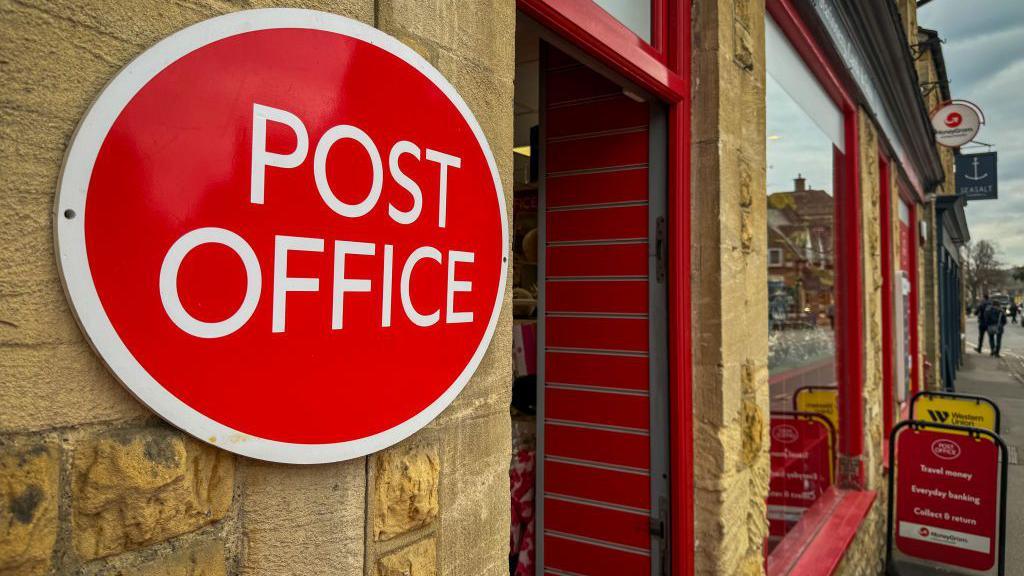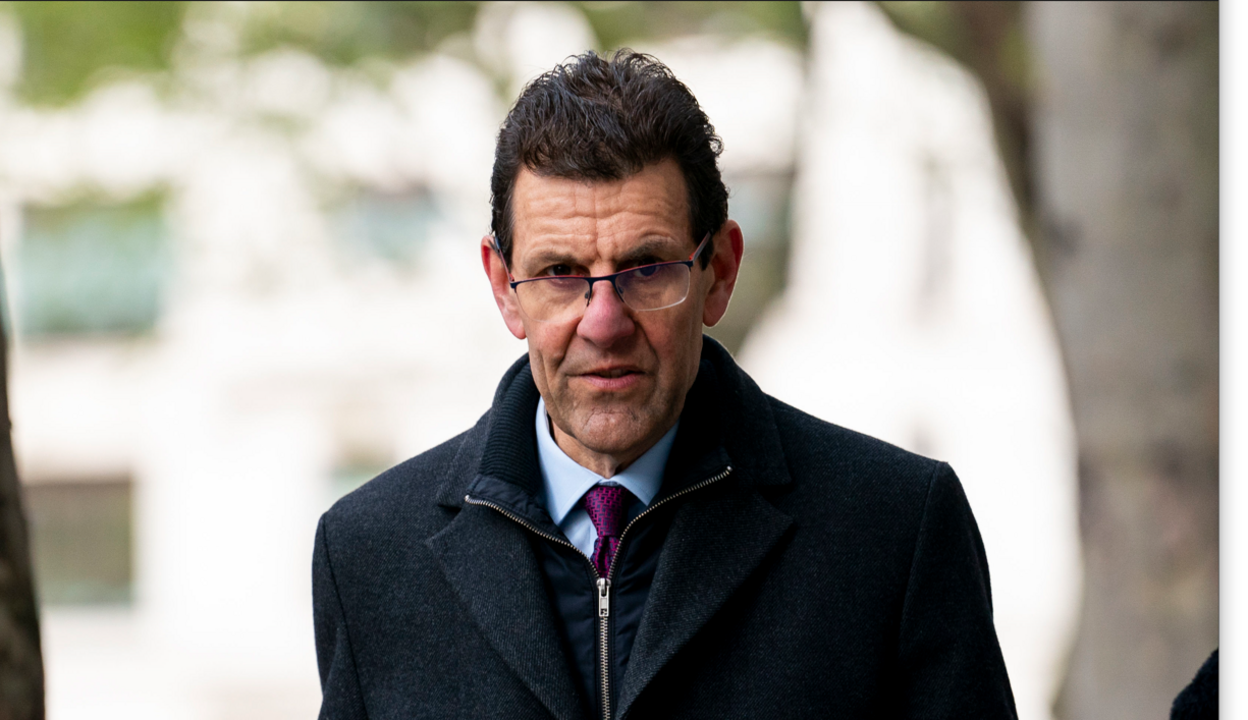Post Office 'saw postmasters as enemies'

- Published
Post Office investigators saw sub-postmasters as "enemies", according to a 2014 draft report by forensic accountants.
This was part of an "adversarial" approach by the company at the time, a former top Post Office lawyer has conceded at an inquiry into the Horizon IT scandal.
The Post Office security team also failed to link various reports by sub-postmasters of faults in accounting software, the report said.
Chris Aujard, a former top lawyer at the group, was quizzed about why he did not take action on the findings.
Between 1999 and 2015 hundreds of sub-postmasters were prosecuted by the Post Office for offences including theft and false accounting on the strength of the faulty Horizon software.
On Thursday, the long running inquiry into the scandal was shown the draft report by Ron Warmington of accountancy firm Second Sight which raised serious concerns about Post Office investigations into sub-postmasters.
It said that investigators "often appear to have paid scant attention" to sub-postmasters who told them that they were innocent of fraud, or pointed out anomalies in transactions.
"They [investigators] seem to have shown little or no willingness to establish the underlying root cause of any given shortfall," the report said.
This seemed to stem from a desire to "get the money back" from the sub-postmasters, "knowing that a false accounting convictions will provide a relatively inexpensive pathway to that goal", it said.
"The overwhelming impression gained from reviewing the transcripts of investigative interviews is that the sub-postmaster was viewed as an enemy of the business," the report added.
The investigations team seemed to presume that sub-postmasters were automatically guilty, rather than "seeking the truth", the report said.
By failing to investigate what the sub-postmasters had been saying, or even to take proper notice of them, "the investigators have alienated all of them", it said.
"It is that group (the sub-postmasters who evidently still believe themselves not only to be innocent but also to have been cheated by the Post Office) who really have become enemies of the business," the report added.
Mr Aujard, who was general counsel at the Post Office from 2013 to 2015, said that "this is a specific case of a specific team allegedly behaving in a certain way... and I do agree, this reads as though that team is adopting an adversarial approach to their investigation".
But he said a caveat was that the accountants writing the report had not interviewed the investigators themselves, but had written the report based on transcripts of sub-postmaster interviews by the investigators.

Chris Aujard was general counsel at the Post Office from 2013 to 2015
Flora Page, a lawyer acting for Horizon victims, said the 2014 draft report had raised "serious concerns over past prosecutions" and had "demanded immediate action to make sure it was properly understood".
She asked whether immediate action had been taken.
Mr Aujard said: "My view at the time was that given it was marked as a draft document, and heavily caveated, it was something that would have required investigation in due course, had I been at the Post Office for longer."
The chair of the inquiry, Sir Wyn Williams, asked what had happened with the document.
Mr Aujard replied: “My recollection is that I would have read it at the time and put it to one side and that would have informed my thinking more fully about the organisation that I’d just joined. Beyond that, I can’t say I took any further action, or I can’t recollect taking any further action, in relation to this document.”
Separately, inquiry counsel Julian Blake questioned lawyer Martin Smith, who used to work for Post Office advisers Cartwright King, about disclosure of Horizon bugs.
Mr Smith gave evidence that he had alerted Cartwright King in 2013 to alleged instructions from Post Office head of security John Scott to shred documents relating to the scandal to prevent disclosure in court – allegations that Mr Scott has refuted.
Questioning then turned to a request by the then-Post Office general counsel Rodric Williams in May 2016 for there to be “no email traffic” in discussions about a Horizon bug that affected the Wimbledon branch and could have been more than a decade old at that point.
At the time, sub-postmasters were taking the Post Office to court in a no-win, no-fee class action.
Mr Williams was concerned that “this matter is subject to the group action and data could be disclosable”.
Mr Smith said he understood that this was to prevent “incorrect information entering the public domain” if there were a trawl of emails that contained speculation.
Towards the end of the session Sam Stein KC who represents former sub-postmasters asked Mr Smith why he did not inform police when he witnessed former Fujitsu employee Gareth Jenkins failing to disclose material to the courts.
After a long pause Mr Smith said: “I don’t know.”
Gareth Jenkins was the former chief IT architect of the Horizon system. His evidence was used in court to prosecute Seema Misra and other sub-postmasters. Mrs Misra was sentenced to 15 months in jail while pregnant with her second child.
Then when asked if Mr Smith told Fujitsu, he said: “I don’t believe we said anything to Fujitsu.”
“I didn’t give that any thought, perhaps I thought that the Post Office might do that given that they’re the ones with the contractual relationship with Fujitsu.”
Mr Smith admitted he and his colleague at Cartwright King, Simon Clarke, secretly recorded a phone call with Gareth Jenkins because they were “suspicious” of him.
But when pressed why it did not cross his mind to tell the Post Office to inform Fujitsu that, in his view, their expert had been dishonest with the courts, he replied: “Myself and Mr Clarke did not discuss that. We didn’t discuss that we were potential witnesses, we did not discuss the possibility of informing the police or Fujitsu.”